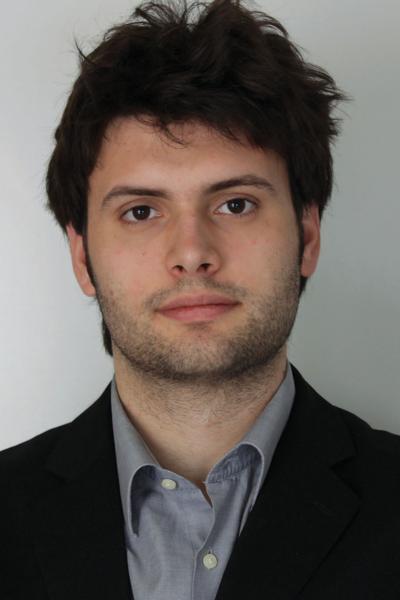Mirko Pasquini
Affiliated Postdoctoral position at Institutionen för kulturantropologi och etnologi; Kulturantropologi; Anknutna
- E-mail:
- mirko.pasquini@antro.uu.se
- Visiting address:
- Thunbergsvägen 3 H
- Postal address:
- Box 631
751 26 Uppsala
Postdoctoral position at Institutionen för idéhistoria
- E-mail:
- mirko.pasquini@idehist.uu.se
- Visiting address:
- Engelska parken, Thunbergsvägen 3P
- Postal address:
- Box 629
751 26 UPPSALA
Download contact information for Mirko Pasquini at Institutionen för idéhistoria
- ORCID:
- 0000-0002-6570-539X
More information is available to staff who log in.
Short presentation
I am a Medical Anthropologist trained in Conversation Analysis and Visual Methods.
I study medical procedures in action, sticking closely to their practical and ethical dimensions.
My current research focuses on “Mistrust in practice” in healthcare interactions in the aftermath of COVID-19 in Europe.
I address issues of hospital overcrowding, triage and violence against the healthcare staff by looking at negotiations of needs, vulnerability and legitimacy amidst actors participating to care.
Keywords
- attention and perception
- body
- emergency care
- ethics of care
- global health
- medical anthropology
- medical knowledge
- mistrust
- primary health care
- structural competency
- vulnerability
Biography
I am a Medical Anthropologist and International Postdoctoral Research Fellow at the Centre for Medical Humanities (CMH). My research project, “Mistrust in practice: an ethnography of suspicion in general medical practice in the aftermath of COVID-19”, was awarded in 2021 a three-years International Postdoc Grant from the Swedish Research Council (Vetenskapsrådet).
The project documents the dynamics of mistrust in situated healthcare interactions that unfold between patients and general practice doctors (GPs) in Italy in the aftermath of COVID-19. The study highlights mistrust as not just the absence or lack of trust, but as an interactional resource and a force in its own right. In so doing, the project will contribute to debates about the “crisis of trust” in the healthcare sector. This work will provide timely information and analysis that will help us understand the complexity of mistrust in times of health crises.
I defended my Ph.D. in Cultural Anthropology in May 2021, and I was part of the Engaging Vulnerability research program (EV) headed by anthropologist Don Kulick. My work, “The Negotiation of Urgency: Economies of Attention in an Italian Emergency Room”, has been awarded the annual Westinska Prize (2021) for outstanding dissertation by the Royal Society of Humanists at Uppsala University.
The book is currently under contract by Rutgers University Press, to be published in the “Medical Anthropology, Health, Inequity and Social Justice” series edited by Lenore Manderson. In the book, I ethnographically explore the everyday life of an Italian Emergency Room as a place where urgency is at stake; caught up in and contested, by competing understandings concerning existential, social and economic precarity. The ER is described as a place of conflict and creative reinvention, where productive negotiations of more equitable ways to distribute care take place amid ER staff and suffering people struggling for social justice.
Since 2018, I am engaged in health workers’ training in “Structural Competency”, a recent innovation in medicine's understanding of and responses to social and health inequalities, to increase professionals’ awareness of structural determinants of health and care access.
I worked on healthcare systems both in Europe and the US, during my stay at Indiana University. I am currently engaged in international projects on mistrust and violence against healthcare staff, collaborating with regional healthcare authorities in Sweden and Italy to bring research insights into community-centered primary care.
Research
I am a Medical Anthropologist and, since April 2022, International Postdoctoral Research Fellow at the Centre for Medical Humanities (CMH). My research project, “Mistrust in practice: an ethnography of suspicion in general medical practice in the aftermath of COVID-19”, was awarded in 2021 a three-years International Postdoc Grant from the Swedish Research Council (Vetenskapsrådet).
The project documents the dynamics of mistrust in situated healthcare interactions that unfold between patients and general practice doctors (GPs) in Italy in the aftermath of COVID-19. The study highlights mistrust as not just the absence or lack of trust, but as an interactional resource and a force in its own right. In so doing, the project will contribute to debates about the “crisis of trust” in the healthcare sector. This work will provide timely information and analysis that will help us understand the complexity of mistrust in times of health crises.
I defended my Ph.D. in Cultural Anthropology in May 2021, and I was part of the Engaging Vulnerability research program (EV) headed by anthropologist Don Kulick. My work, “The Negotiation of Urgency: Economies of Attention in an Italian Emergency Room”, has been awarded the annual Westinska Prize (2021) for outstanding dissertation by the Royal Society of Humanists at Uppsala University.
In my dissertation, I ethnographically explored the everyday life of an Italian Emergency Room as a place where urgency is at stake; caught up in and contested, by competing understandings concerning existential, social and economic precarity. The ER is described as a place of conflict and creative reinvention, where productive negotiations of more equitable ways to distribute care take place amid ER staff and suffering people struggling for social justice.
Since 2018, I am engaged in health workers’ training in “Structural Competency”, a recent innovation in medicine's understanding of and responses to social and health inequalities, to increase professionals’ awareness of structural determinants of health and care access.
Keywords: Triage, Medical anthropology, Urgency, Italy, Emergency Care, Care, Attention, Chronicity, Violence, Mistrust
Media
Publications
Selection of publications
- Urgency at Stake (2023)
- Mistrustful Dependency (2023)
- Like ticking time bombs (2022)
- The Negotiation of Urgency (2021)
Recent publications
- Urgency at Stake (2023)
- Mistrustful Dependency (2023)
- Like ticking time bombs (2022)
- The Negotiation of Urgency (2021)
All publications
Articles
Books
Chapters

